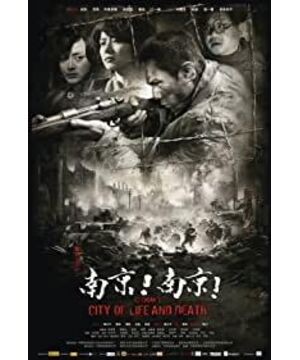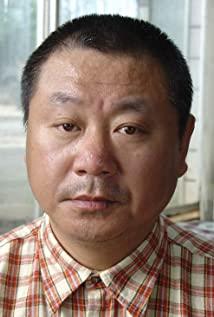I finally watched it. Unexpectedly, I thought I would be very angry and depressed after watching it, but no, Lu Chuan did not make this film a simple accusation or emotional catharsis. In fact, movies can easily become a cathartic tool, and two hours of immersion in the dark can satisfy a fantasy. When the team led by Liu Ye completed a successful blocking, I even hoped that he would be like Bruce Willis in "Die Hard" or Beckett in "Die Sniper", alone. change history. Even before he was killed, when he stood up from the crowd for the first time, when he walked out of the city gate, I still had fantasies in my heart, hoping that he would lead the group of men to roar. Even if he still died there, at least he had the attitude of a charge. But no, they obediently went to the riverside and waited until the gunshots rang out.
Of course, when the numb soldiers gave up the fight and fought desperately for their lives; when the numb crowds obeyed the command of death, when the beautiful girls turned into piles of corpses, you couldn't be outraged.
But Lu Chuan grasped this scale and did not let the film, which had been prepared for four years, be filled with revolutionary romanticism, and did not let anger dominate the audience. Because anger is a transient emotion, no one will be continuously angry, if you want to make people think, you can't let people out of anger, angry people have no way to think. Lu Chuan is indeed the most respectable director of this generation. Without Feng Xiaogang and the others, we would have fewer jokes, but without Lu Chuan, we would lose the memory of a nation. These memories form the basic identity of why we are who we are and not them. Whether it's Hoh Xil or this movie, it's the same.
The drumming scene is undoubtedly the climax of the show. Ritual, it is ritual, that expresses the meaning of this tragedy incisively and vividly - the Asura hell of one group of people is the joyful field of another group of people. Later, I saw an interview with Lu Chuan in "Watching the Movie", saying that this plot was a dream he had before filming, which was later used by him as the core of the film. A story told to him by a Japanese actor strengthened his determination to make the scene. The actor's grandfather once went to Nanjing in 1937. When he was dying, his grandson asked him when was the happiest time in his life. He answered in a weak voice that it was in Nanjing, 1937. When sins are completely released, the human world becomes an asura field, and for demons, it is a feast of festivals.
At the end of the film, Kadokawa asked, "Actually, it's harder to live than to die, right," before a gunshot rang out and he fell into a ditch. The one big and small, who had just been released by him, looked at each other and found that they were not injured and laughed, happy and natural. The background is the broken city wall, and outside the city wall, the earth is back to life again. The dandelions that were blown away are not about to sow seeds again, as Fan Wei said before his death, "My daughter-in-law is pregnant again."
This land has an unparalleled vitality, so that after decades, if you don't deliberately look for it, you can't find traces of that time. The reason to mention it again and again is not for hatred, nor for venting, but for remembering.
View more about City of Life and Death reviews











